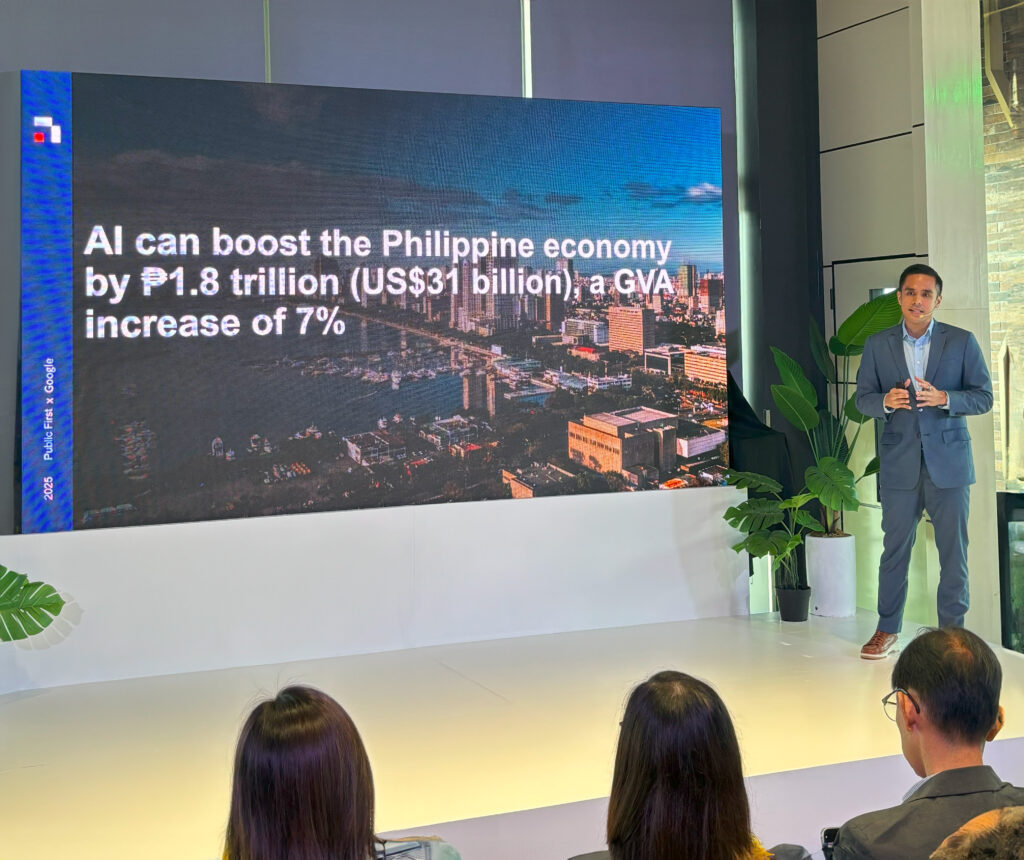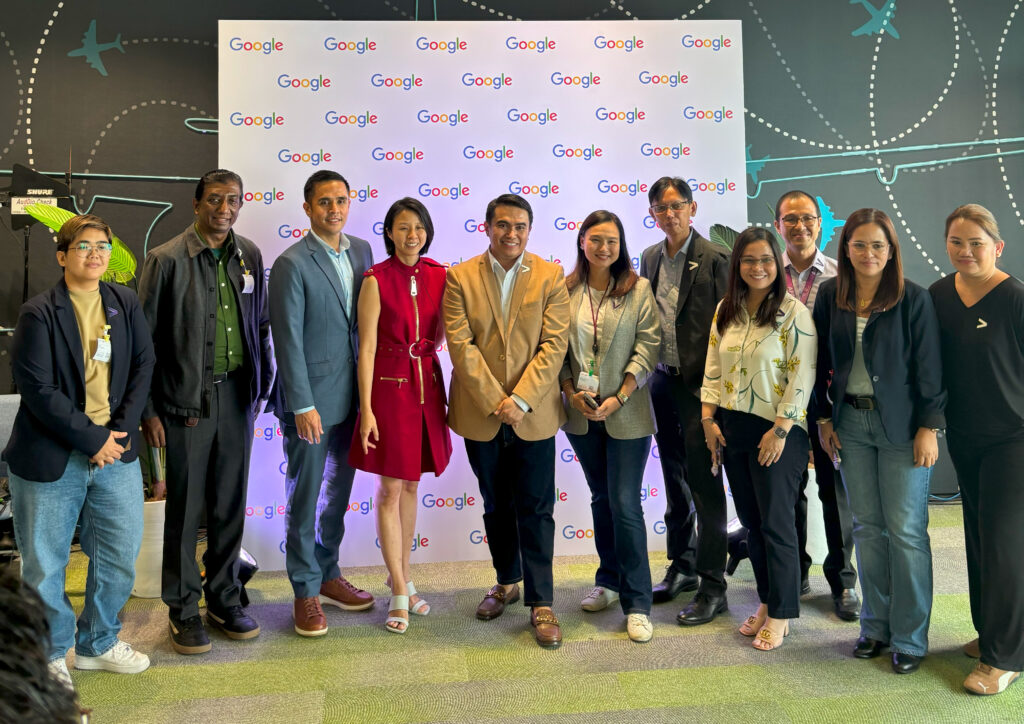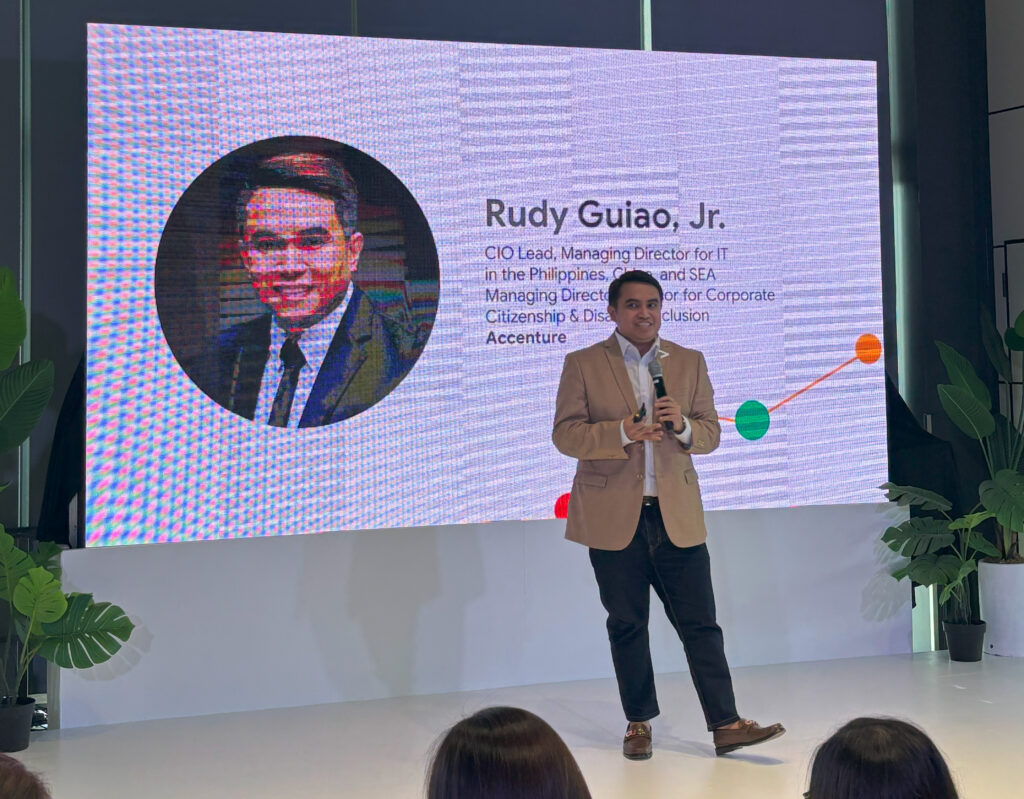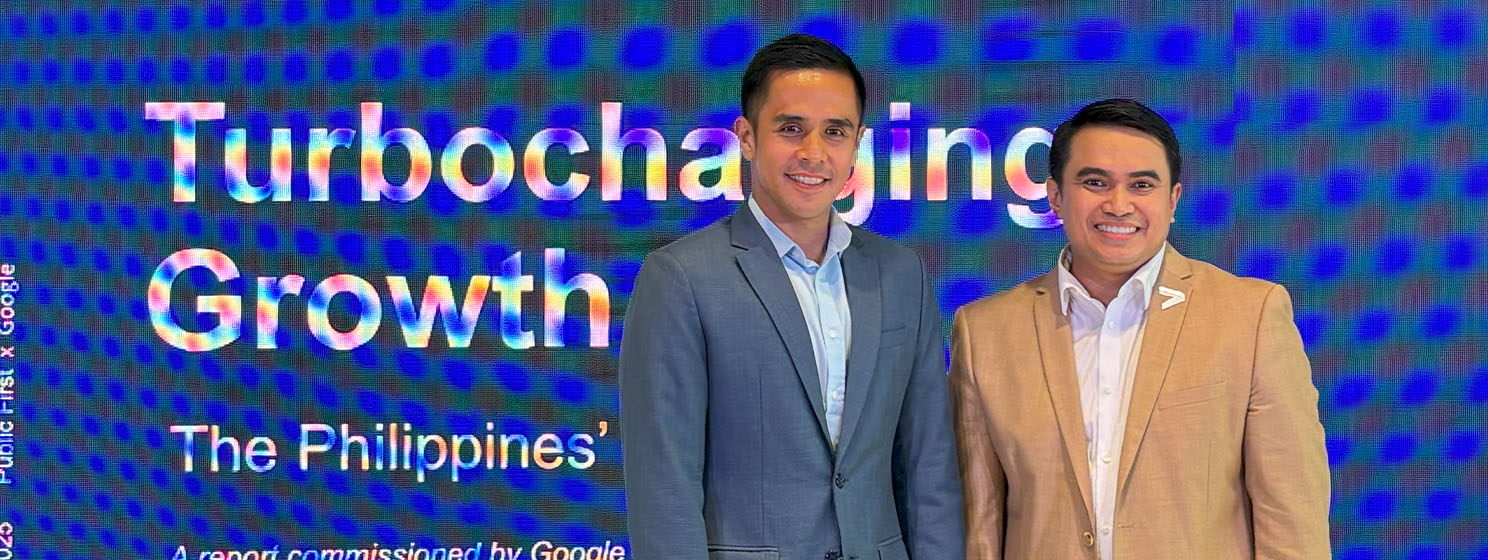|
Getting your Trinity Audio player ready...
|
Artificial intelligence (AI) isn’t just coming to the Philippines; it’s already here, reshaping how Filipinos work, shop, farm, and even interact with their government.
That was the key message from Gabby Roxas, Google’s (NASDAQ: GOOGL) marketing manager for Vietnam and the Philippines, who spoke at Google Philippines’ recent event, which focused on building a digital Philippines with AI. Roxas unveiled fresh research conducted with global consultancy Public First. The study paints an optimistic picture: AI could add between ₱1.3 trillion ($22 billion) and ₱1.8 trillion ($31 billion) to the Philippine economy, roughly a 7% boost in GDP. But Roxas stresses the real engine isn’t just the tech, it’s the people.
“AI is nothing without the people,” Roxas told the audience. “The technology is here, but what’s most important is for us to come together as an ecosystem to drive education and learning.”

Filipinos are already on board
According to the study, 50% of Filipinos already use AI in their personal lives at least once a week, and 76% either use AI for work or plan to within the year. Younger demographics and the country’s strong English proficiency give the Philippines an edge in adoption.
Workers aren’t just curious, they’re eager to skill up. 87% say they’re interested in using AI to learn something new, and 80% would take AI-specific trainingfrom their employers.
For businesses, that’s a green light to start building AI capabilities before competitors seize the advantage.
From retail to rice fields: AI across sectors
Roxas outlined four sectors where AI could have an immediate impact:
- Wholesale and Retail: Faster ad creation, instant customer query resolution, and even breaking into foreign markets with AI-powered translation.
- Finance and Insurance: Better forecasting, personalized products, and faster fraud detection.
- Public Administration and Defense: Streamlined citizen services and data-driven policy making.
- Agriculture: Predictive models using weather, soil, and crop health data to prevent disease and improve yields.
By 2035, AI-driven innovation in agriculture alone could contribute ₱120 billion ($2 billion) to the economy.
Cybersecurity and the blockchain connection
Cyber threats remain a top concern. Roxas believes AI can play a frontline role, especially in synergy with blockchain’s immutable audit trails.

“AI doesn’t rest, it can monitor transactional data, network endpoints, and devices 24/7 to spot anomalies and automatically isolate threats,” Roxas told CoinGeek. “The other side is protecting individual consumers, your devices, your accounts. We’re working with industry partners to make the whole ecosystem safer.”
He also highlighted Google’s “SynthID” technology, a feature that embeds digital watermarks into AI-generated content, making it more straightforward for governments and platforms to identify manipulated audio or video.
“We’re showcasing these tools to policymakers so they can see responsible AI development in action, not just theory,” he added.
AI in the real world: case studies
Two examples that prove AI is already working at scale in the Philippines are:
- SM Malls: Using Google’s Document AI and Cloud services, SM has cut the time and cost of financial filings for mall tenants, freeing them to focus on sales and customer service.
- eGov PH App: Powered by Google AI, the government’s “super app” consolidates multiple public services into one platform, simplifying processes for millions of Filipinos.
Training the nation for the AI era
To ensure Filipinos can fully leverage AI, Google is rolling out “Google Career Certificates” and “AI Essentials” training in partnership with the Department of Information and Communications Technology (DICT), Business Process Association of the Philippines, and even the Office of the Presidential Adviser on Peace, Reconciliation and Unity.
The Web3 opportunity
For a Web3 audience, the takeaway is clear: AI’s real power emerges when paired with decentralized, verifiable infrastructure. Blockchain can help secure AI systems against tampering, provide transparent records for AI decision-making, and build trust in AI-generated outputs.
With the Philippines positioning itself as an AI policy leader in Southeast Asia and boasting one of the youngest workforces in the region, the potential for AI–blockchain innovation here is enormous.
As Roxas puts it: “This isn’t just about technology, it’s about creating a new growth engine for the Philippines.”
Accelerating Philippine talent through AI and beyond
The same event also featured Rudy Guiao, Accenture CIO Lead and Managing Director for IT in the Philippines, China, and Southeast Asia, who underscored that the recent collaboration between Google and Accenture (NASDAQ: ACN) is “not just celebrating a partnership… it’s a shared commitment to upskill, enable success for the Filipino talents.”
At the heart of this collaboration is a focus on equipping Filipinos, including underrepresented groups, with skills that are future-ready. Guiao highlighted programs such as “Nanay’s in IT,” a six-month intensive training initiative designed for mothers with zero background in technology, which has already graduated more than 300 women. Another is a scholarship program targeting bright yet underprivileged students from Visayas and Mindanao, providing full academic support and now enhanced with Google-powered AI training to ensure graduates are “future proof.”

Through Google’s donation of certifications, training licenses, and platform access, these programs gain an added layer of credibility and practical application. “It’s not just the courses itself… it comes with a certification. So it validates if they have learned really this entire course, and it’s something they can apply because it comes also with laboratory access,” Guiao told CoinGeek. This approach ensures that skills are not only learned but also industry-aligned, tailored to the specific needs of sectors such as health services and financial technology.
Accenture’s “Skills to Succeed Academy,” already raising employability rates by 86%, will also integrate these new AI and tech learning resources. This, Guiao noted, will help position the Philippines as a competitive hub for digital talent, an essential step for economic growth in a tech-driven global economy.
When asked how these AI upskilling efforts prepare workers for emerging technologies such as blockchain and Web3, Guiao stressed the importance of adaptability:
“I think it’s really cross-skilling… what’s important is that you continue to leverage on the impact and the outcome of each technology and how you can actually use the best of each technology to cross-function with each other. With the power of your cross-skilling and ensuring that they work together, you’ll be able to get also the best of all technology and making it more sustainable… not just as a fad or a trend, but something that would really last for the business and the community.”
For Guiao, AI is no longer an experimental niche; it is embedded in Accenture’s core operations. With $1 billion invested annually in digital skilling for employees, AI literacy has become a baseline expectation for all 700,000+ staff globally. This mindset, coupled with community-focused initiatives, is aimed at ensuring no one is left behind in the digital shift.
By combining Google’s resources with Accenture’s grassroots training programs, the partnership represents a model for sustainable digital transformation—one where technological innovation, inclusivity, and economic development go hand in hand.
In order for artificial intelligence (AI) to work right within the law and thrive in the face of growing challenges, it needs to integrate an enterprise blockchain system that ensures data input quality and ownership—allowing it to keep data safe while also guaranteeing the immutability of data. Check out CoinGeek’s coverage on this emerging tech to learn more why Enterprise blockchain will be the backbone of AI.
Watch: Inside the Philippine’s blockchain revolution—what you need to know

 02-20-2026
02-20-2026 




